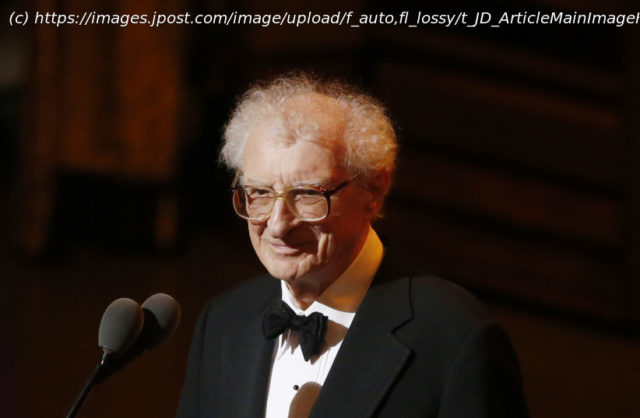Harnick — whose paeans to Jewish tradition have become internationally appreciated as a reflection of cultural loss — died Friday at his home in Manhattan.
The moment when Sheldon Harnick realized that his new musical might be something special came when he sang the lyrics he had just composed for a new song: “Sunrise, Sunset.”
He was sitting in the basement studio of his friend and collaborator, the composer Jerry Bock, in New Rochelle, New York. It was 1961, and they were in the throes of writing “Fiddler on the Roof.” Bock had originally meant for the melody to be used for one of the flirtations between Tevye’s three older daughters and their male interests, according to “Wonder of Wonders,” a book about “Fiddler” by Alisa Solomon.
Harnick went a different direction — writing lyrics about the agony of unleashing a child into adulthood that would eventually be sung in the musical’s pivotal wedding scene. When he was finished singing, Bock’s wife Patty was weeping.
“We hoped with any luck that it might run a year,” Harnick said in 1981 on “The Songwriters,” a PBS showcase series. “We were totally unprepared for the impact the show would have literally around the world.”
Harnick — whose paeans to Jewish tradition have become internationally appreciated as a reflection of cultural loss — died Friday at his home in Manhattan. He was 99, and was the last surviving creator of “Fiddler on the Roof.”
Harnick was born in Chicago in 1924, and was in his teens when he first encountered the stories of Sholem Aleichem, which later formed the basis for the musical. But at the time, he “wrote them off,” Solomon quotes him as saying.
Twenty or so years later, a friend gave him Sholem Aleichem’s novel, “Wandering Stars,” about a decades-long show business romance, and Harnick was enchanted. As an adult, Harnick found that Sholom Aleichem’s writing was “wonderfully human and moving and funny,” Solomon quotes him as saying. He had started working with Bock in the late 1950s, and told him and another partner — Joe Stein, who wrote books for musicals — that it could be good material to adapt for the stage.
Stein said “Wandering Stars” was too vast and complex to adapt.






